
Branching Path: Bryan Vitale's Top 10 Games of 2021
Regardless of how much or little time I'm able to set aside at the end of each year, I've continued to make a concentrated effort to write up about the top ten games that I've played, and I'd like to say this year has been no different. However, 2021 proved to be a bit of a challenging time for me for personal reasons beyond the continuing global pandemic and the persistent balancing act of my day job and my contributions to RPG Site. But I still kept some time set aside for my hobbyist endeavors here, and as part of that, I wanted to maintain my annual posting regardless of those external factors.
2021 marks my fifth year writing up a list for this site (2017, 2018, 2019, 2020), and it's been the hardest list to write yet, though not for the typical reason of narrowing down to a top ten. I write these lists up mainly just for myself, but I publicly post them to ensure that I give them the attention, detail, and care that I fear would slip or get skipped entirely if I simply kept them in some personal file for myself to refer back to as a sort of time capsule. Despite feeling like a very long year for me, I've noticed that I played far fewer games, at least those that were released in 2021, so I had a smaller set of titles to pick from. Despite a shallower pool of games played, I still identify several that have left a surprising impression on me as we head into 2022 -- some that I expected to be great and others that I didn't expect to be here at all.
Honorable Mention) Trails from Zero
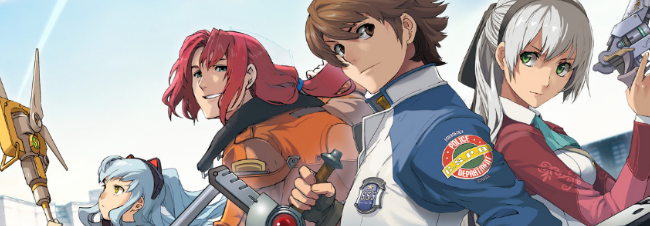
To be honest, there's only a bit of flimsy substantiation for placing Trails from Zero on my 2021 list other than the fact that I've happened to play it this calendar year. In the first half of the year, the team over at The Geofront released their fan translation for Trails to Azure as the second part of that duology of games, so I decided to play through both Trails from Zero and Trails to Azure back-to-back as a sort of due diligence ahead of playing Trails of Cold Steel IV at some point in the future. At the time, the Crossbell pair of titles felt like a forever missing link that would never get addressed in a formal english release. Little did I know that NIS America would soon after announce an official localization slated to begin next year with Trails from Zero. So in a way, I'm jumping the gun here, at least when it comes to an official localization. Oh well.
So why put Trails from Zero on this list? Well, largely because I want to, but also because by listing it as an honorable mention, I can feel that the remaining ranked titles aren't contaminated by its presence here. Most importantly, it was one of my favorite games that I played this year, and I was only able to play and compare the Crossbell Duology entries upon the release of Trails to Azure's Geofront translation, which directly led to the official localization announcement -- all of which is from the first half of 2021. In the interest of not spoiling too much for those waiting for next year, I'll state generically that Trails from Zero managed to rekindle my enjoyment in a series that had begun to lose my interest long ago. Trails from Zero especially reminded me of the strength of Falcom's work when focusing on a smaller cast and a smaller stage. By giving the main core cast of four so much time to breathe and interact without escalating the stakes too high, too fast, I found myself feeling an attachment to the world that I hadn't felt since Trails in the Sky from so many years ago.
I'm looking forward to revisiting Trails from Zero next year, because I have a feeling it will make an appearance on this list again.
10) The Ascent
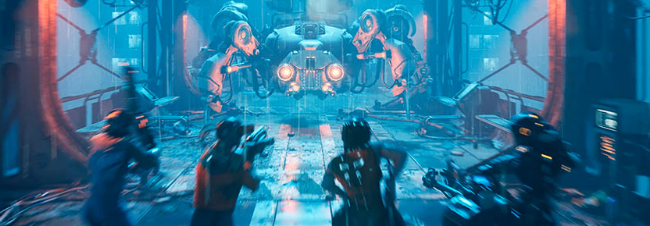
The Ascent was a bit of a random "why not at least try it" game for me this year. That coupled with its availability on Xbox Game Pass meant once I found some free time, I figured I would at least form my own opinion, despite the critical word of mouth being a bit mixed. Perhaps a little bit spurned by my disappointment with Cyberpunk 2077, I wanted to experience another title with a comparable art direction and aesthetic to see if that I could glean some enjoyment from a similarly styled game.
The strongest aspect of The Ascent is just how excellently realized the grimy, claustrophobic, lived-in, neon-lined planet of Veles is. Despite being limited to isometric camera perspective, I was immediately drawn into the alien environment of The Ascent, and the game itself sold the vertical nature of the city through carefully directed excursions up and down the Archology, a skyscraper metropolis that houses all manner of alien, migrant, and corporate stooge. The sound design also contributed to establishing the bustle of life of the city, along with punctuating every shotgun blast and downed mech. While these components were enough to get a spot on my list, a forgettable story and a lot of unevenness with the core combat and lack of polish prevented The Ascent from climbing any higher. It left enough of an impression on me that I'll be keeping an eye out for whatever Neon Giant's next project ends up being.
9) Tales of Arise
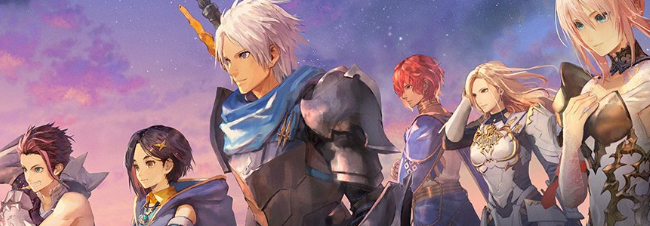
I've never been a huge fan of the 'Tales of' series, despite games like Tales of Vesperia being one of my favorite games of its era, and Tales of Symphonia being a mainstay of my childhood. Other games in the series just never latched on for me, even though Berseria came close. When Tales of Arise was finally unveiled a couple of years ago, I found myself hoping that a new coat of paint and maybe a reevaluation of the core tenets of was a 'Tales of' game could be would bring back a level of excitement for the series that hadn't been matched for a good while now. Unlike my experience with Trails from Zero, however, I found myself slightly underwhelmed by Arise, not because it ended up being a poor game, but mostly because I had likely set my expectations too high.
As shallow as it might come across, the level of graphical fidelity and scope of Tales of Arise was something that I found myself appreciating more than I normally would in another series of games. Perhaps I had seen too many poorly constructed environments and recolored or reused enemy models in the previous half-dozen series entries that seeing a high level of quality across the board here made me stand up and take notice. The battle system as well managed to modernize the action combat of the series without overhauling it entirely, even if some of the specific tuning still felt a little bit off. The framework that Tales of Arise puts forward has me hopeful for future entries to potentially build off of, even if the execution here was merely good and not great. Tales of Arise doesn't falter in any major area, and the potential for excellence is apparent. While it didn't manage to quite stick the landing, I appreciated what it accomplished all the same.
8) Ys IX: Monstrum Nox
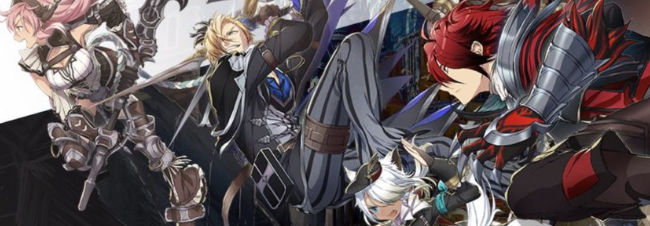
Ys IX was a game I was highly looking forward to for a long while, largely because I had enjoyed Ys VIII: Lacrimosa of Dana far more than any other modern Ys entry since Ys Origin. Looking back, it's interesting to see that Ys VIII didn't make my top ten list at the time, though that's largely due to the amount of competition it was up against. Either that or the fact that I waited for the late PC port means it may have fallen through the cracks. Regardless, I found Ys IX incredibly enjoyable for a lot of the same reasons that made me like Ys VIII: a surprisingly deep cast of characters, an addictive structure of tiering up weapons and abilities as the map and story unfolded, and of course the high-speed action combat that the series has become known for.
Falcom took a bit of a risk with Ys IX by shrinking the setting to primarily a single city. While reusing some of the same mechanics that made more sense in previous settings ended up fitting a bit awkwardly here, such as reusing Ys VIII's Raids and repurposing them, other aspects I thought were carried out quite elegantly. By setting the game's stage down to just Balduq, the decision to utilize the different character abilities to access different areas and secrets of the city and increase the player's movement capability ended up exciting me as I unlocked each in sequence. It also allowed a narrative that was a little less about constantly pushing forward and could pace itself more deliberately. However, some of the final revelations ended up falling a bit flat or feeling too contrived, perhaps squandering the potential of the overall setup a bit. Still, Ys IX sits closely behind VIII for me, and I will be here whenever Falcom decides to revisit Ys next.
7) SaGa Frontier Remastered
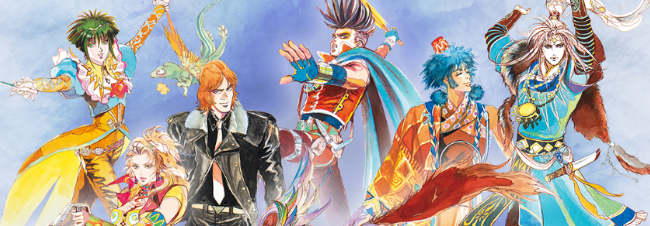
After playing SaGa Scarlet Grade in early 2020 following our 2019 deliberations, I found myself quickly enamored with the game's hyper-focus on finely tuned combat and the addictive nature of tiering up weapon skills. When a remaster of SaGa Frontier was announced about a year later, I was immediately interested on namesake alone. When details started coming forward about how the remaster was going above and beyond by adding new content to story arcs left unfinished from over two decades ago and even adding another character, I knew I had to make time for it.
I largely appreciate SaGa Frontier for how different it feels from most RPGs. The story involvement is done with such a light touch that it's almost unsettlingly terse. Story arcs would commence or close out with a single line of dialogue, or allies would join the party with barely a second breath. While Scarlet Grace felt similar in some ways, Frontier was focused in this way to an even greater extreme. While it took a bit to acclimate to this, it ended up feeling second nature by the time I got to my third playthrough and beyond. Additionally, while I did not play the original release from the 90s, I greatly appreciated some of the changes made here such as being able to carry over progress to subsequent playthroughs and being able to run from combat. It made my curiosity to see the different perspectives convenient to carry out as I progressed from character to character. While I did wish that more of the characters had a lesser degree of overlap, such as the Rune quests feeling a bit rote by the 5th time through them, I still enjoyed my time from start to finish through all 8 stories. It's easy to see why SaGa Frontier has the fans that it does.
6) Pathfinder: Wrath of the Righteous
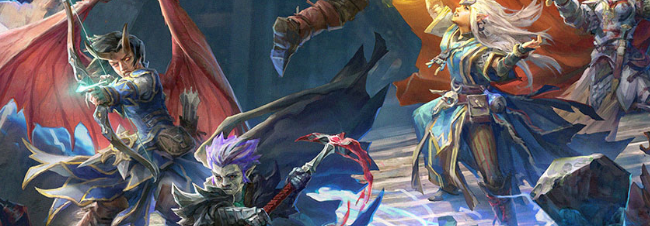
I ended up spending a lot of time thinking about Pathfinder: Kingmaker upon its release a few years back. Despite launching in a terrible state, I found myself quite enamored with Owlcat's debut title and ended up thinking quite highly of it once it had spent a significant amount of time being patched up and polished out. I had high hopes that Pathfinder: Wrath of the Righteous would end up reaching the same bar without stumbling so severely out of the gate. Owlcat's follow-up was indeed a bit more polished on release, at least relative to Kingmaker, and I found myself thoroughly immersed once again for over one hundred hours.
Pathfinder: Wrath of the Righteous is a lore geek's dream game. For newcomers or veterans to the IP, Wrath is jam-packed with memorable characters, tons of lore, cool set pieces, wonderful art, and a ton of dialogue that's a joy to read. On the RPG front, the build possibilities are insanely varied, and the number of knobs and levels the player has access to at any one point are staggering. I personally love micro-managing every once in a while, and I was allowed that in spades here. Despite the length of the game, Wrath of the Righteous also managed to never feel like the story was spinning its wheels. Almost every one of the game's five Acts takes place in a different location, changing up the setting just as soon as it may have started to get stale. Tons of quests and secret objectives meant that I was constantly being rewarded with new gear, character backgrounds, secret locations, and I honestly felt spoiled. If I had gelled better with the Crusade gameplay mechanics or the forced turn-based encounters, this could have ended up even higher. Pathfinder is the sort of game that if I had infinite time, I'd love to do another playthrough on a different type of character. Maybe once all of the additional content gets rolled out.
5) Ruined King: A League of Legends Story
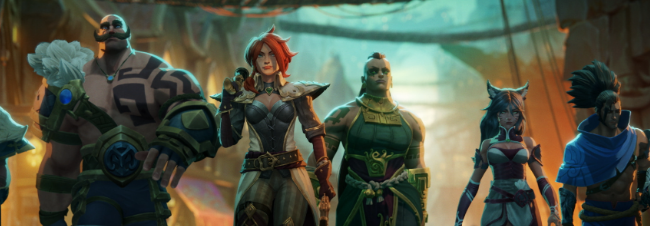
I have no history or knowledge of League of Legends, other than what I manage to incidentally pick up through osmosis. It's a world and a setting I've always been somewhat interested in, but I've never made time to properly learn about League and I likely never will. However, when it was announced that Airship Syndicate would be making a turn-based RPG straight up my alley, well, I had no excuse to not try this one out. I had enjoyed Battle Chasers: Nightwar a good deal, so a similar game based on League of Legends characters and setting was a perfect gateway.
Despite being familiar with the developer, I had no real expectations going into Ruined King, which was likely made even more true when the game was shadow-dropped back in November. The main result was that I was greatly surprised by Ruined King having one of the most unique turn-based combat implementations I've experienced yet. The decision-making behind deciding which lane to cast abilities in was a fun gimmick that never got old, and carried my interest through the whole game.
While several of the characters were familiar archetypes and many of the puzzles were merely fine, I found myself incredibly impressed at the design of each party member's skills and traits. While I haven't played the original rendition of these champions, I felt like I had an understanding of what sort of role they played in the core game based solely on their adaptation to the turn-based format. The comic-book-styled art felt like a really good fit for the setting as well, and the scope of side objectives constantly had me retracing my steps to see if I had any more secrets to uncover. Ruined King would have been the most surprising game I played this year if not for the next entry just barely edging it out.
4) Scarlet Nexus
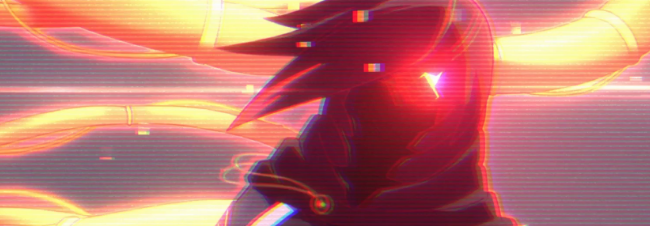
Unlike most of the other games on this list. I did not find myself eagerly anticipating Scarlet Nexus. In fact, my motivation going into the game was mostly on a site-coverage consideration basis rather than a true personal interest. However, the more time I put into Scarlet Nexus, the more I found that it endeared itself to me. Looking back on my experience with it now, I realize that I came away from it more fondly than the majority of what I've played this year. Scarlet Nexus was a game I (perhaps unfairly) expected to dislike and ended up quite fond of despite my preconceptions. If that's not a testament to its position on this list, I'm not sure what would be.
Scarlet Nexus does everything that a new IP needs to in order to get me on board. It establishes its setting and premise quickly and effectively, gives me several fun characters to latch onto, and provides a nifty combat experience that I want to engage with and improve at. While the bonding episodes and the presentation of the large amount of conversations between characters was often in the crosshairs of critics, I found that I really enjoyed the volume of dialogue that expanded on the lore of the world and the history and behavior of its inhabitants. The breakneck pace of story revelations and rapid escalation was something that I found compelling in this case, despite my usual disdain for stories that attempt to raise the stakes too fast. Several moments elicited some real emotional feedback from me, which was something I absolutely didn't anticipate. The final hooks for a possible sequel at the very end have me enthusiastically considering the potential ways Scarlet Nexus could be built on for a follow-up entry.
3) NieR Replicant ver.1.22474487139...

Like many others, I did not play NieR when it first released a decade ago and I was instead introduced to the series through 2017's NieR Automata, and even then it took me a while to get around to playing it. The unique tone of storytelling, the flow of combat, and the dreary setting of the world immediately left a mark on me. When a NieR remaster provided a chance to return to a game I had previously skipped, I knew I had to take up the opportunity to see what I had missed.
NieR manages to take a relatively small setting and brief roster of characters and manages to squeeze in so many narrative threads that it's impressive to think back on in hindsight. A lot of this is accomplished within the repeating and recontextualizing nature of the way NieR handles endings, sure, but even with this trick the result is incredibly effective. Whether it's the revelations behind the existence of Shades, the motivations of so many of the different boss encounters, the history of the game's few locations, every story was impeccably layered to keep me eager to see exactly how my expectations would be subverted each time I went to repeat a specific section of the game. The main cast of Nier, Kaine, Emil, and Weiss also play off each other wonderfully in a way that a more conventional party-based RPG hasn't ever matched.
While I did not play the original rendition of the game to make a true comparison, I enjoyed the weight of the combat system and enjoyed the few ways this was altered to fit certain sections of the game, from bullet hell bosses to shifting to isometric or 2D perspectives at times. Top that with incredible music and voice acting, and I'm not surprised that NieR managed to gather the cult following that it did over a decade ago.
2) Shin Megami Tensei V
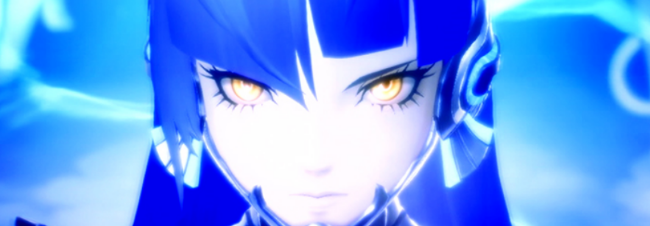
I've always been a sort of a fringe Atlus fan. However, several of my peers at RPG Site and otherwise have sung the praises of games like Shin Megami Tensei III: Nocturne for years now, both for the feel of its Press Turn combat system and style of storytelling. I always felt that it was a bit of a gap in my knowledge base to not have much first-hand experience with most of these titles, and felt like I owed it to myself to not skip the newest entry after waiting nearly 4 years for it to release since its first announcement. Ahead of playing it, Shin Megami Tensei V seemed to tick all of the boxes about what I enjoy in RPGs: a high level of challenge, an evocative story premise that's not bogged down in exposition or melodrama, a good degree of buildcraft and party management, a compelling setting, and a unique art style. In a lot of ways, I expected to enjoy Shin Megami Tensei V for some of the same reasons that I enjoyed what I've played of the SaGa series. For this year, this was the one instance where my high expectations and the final result ended up being very aligned.
I love how Shin Megami Tensei V spends just a bit of time establishing the basic premise before throwing the player in the deep end. Most of the introductory sections do just what's needed to introduce the roster of characters, explain the combat, and give the player an objective. I found myself really engaged with capturing demons, deciding exactly how I wanted to build my character and party, and adjusting my strategy based on the enemies I ended up encountering. On a more superficial level, I found myself really excited with every new demon I came across, each with its own manner of speaking, animations, and even just the individual concepts behind each. It might seem like a small thing to appreciate, but in a genre where enemy recoloring or the like is almost expected, I greatly appreciated the variety, number, and uniqueness of all the demons in Shin Megami Tensei V. Since the long-form progression of the game revolves entirely around capturing and fusing new demons, I think it goes a long way to contribute to my enjoyment to see that such care was undertaken in implementing them so thoroughly.
As a whole, my main takeaway around Shin Megami Tensei V is how cohesive all of its parts mesh together. The aggressiveness of the music when in Da'at versus the mysterious and quiet nature of the Tokyo theme really sells each environment and their general vibe. The resource management of strengthening demons and forming builds based on their essences, or retooling the main character's abilities to best suit their role in the party. The game also naturally explores the motivations behind characters like Hayao Koshimizu or Shohei Yakumo or even demons like Khonsu without explicitly drawing where each faction aligns or conflicts. My only nitpick is that so much of the interesting interplay between so many of the demons only comes into play very late in the game, but luckily the gameplay progression alone did plenty to keep me going in the middle section of my playthrough. All in all, Shin Megami Tensei V is the one time this year where my high expectations were exceeded.
1) Fantasian
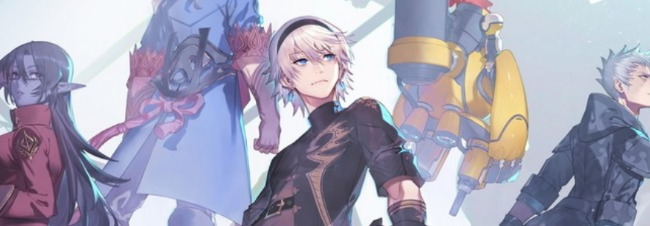
I was not expecting Fantasian to top my list at the start of the year. Like I presume many others, when I learned that Fantasian was an Apple Arcade exclusive that was only playable on primarily mobile devices, I figured it would be an interesting but likely forgettable experience. Releasing in two parts did Fantasian no favors either, as Part 1 did not match the scope and quality of Part 2, which was released several months later once first impressions had already been established. I myself took a few extra months to get around to Part 2 simply due to not having the bandwidth at the time and would need to have renewed my Apple Arcade subscription in order to return to the game. In a lot of ways, Fantasian has a handful of logistical hurdles surrounding it that are independent of the game itself. Once I navigated my way past these hurdles, however, I realized that I enjoyed my time with Fantasian more than any other title this year.
Thinking back, Fantasian challenged me in ways that other games this year didn't quite manage. While it's easy to recall times in other games where super bosses or optional dungeons end up testing my mettle, typically these are either done in post-game areas or are easy to overcome through grinding or abusing mechanics like limit breaks. The fact that Fantasian is bold enough and confident enough to ask for a level of understanding and mastery of its gameplay systems just to simply finish out the main story was something that I greatly appreciated, and it made each progression past a new boss encounter even more memorable.
Speaking only about the challenge of the game isn't enough on its own to substantiate its place at the top of my list, however. Despite the lack of voice acting, Fantasian was a joy to read through, both because of snappy dialogue and the evocative Memories sequences that convey the background of the story. While they didn't reach quite as high as the Dreams sequences from Lost Odyssey, I found myself enjoying these vignettes more and more, especially as the stakes increased in the later sections of the story. Even beyond that, the unique depictions of characters like Ez. Leo, and Valrika was readily apparent even in the short speech windows given to each.
Have I mentioned that Leo's inability to properly operate buttons or switches is a really endearing character trait? It's a bit silly, sure, but I enjoyed how Fantasian was able to deftly balance some levity with sillier moments juxtaposed against the more serious situations.
It admittedly feels difficult to try to convince people that Fantasian has earned its spot here at the top of the list. But as I evaluate the possible other contenders, I can easily identify clear shortcomings and pitfalls that prevent any other title from sitting at number 1. With Fantasian, I feel like I would have to nitpick to a greater degree -- it simply does everything well. It truly looks like no other game I've played due to the use of physical dioramas, and the CG and 2D art complement it well beyond that. Along with the level of challenge and a longer runtime than I expected, I honestly felt both spoiled and completely engaged. No other game this year accomplished that to the same degree. That's why Fantasian is my favorite game of 2021.